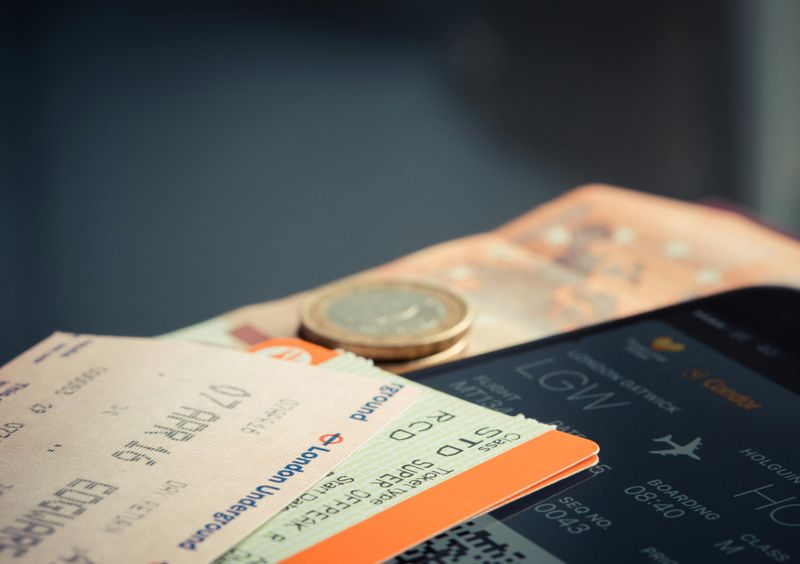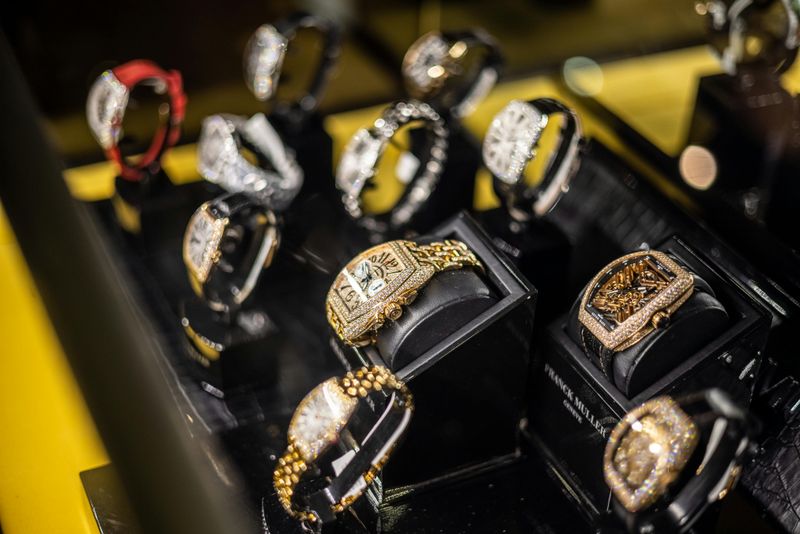13 Things Wealthy People Never Pay Full Price For

Rich people didn’t get wealthy by throwing money around carelessly. They know the secret to building and keeping wealth is spending smart, not spending more. While many assume the wealthy pay top dollar for everything, the truth is quite the opposite—they’re masters at finding deals and negotiating prices on everyday purchases.
1. Luxury Cars

Wealthy buyers understand that luxury vehicles lose value the moment they leave the lot. Instead of paying sticker price, they negotiate hard or buy certified pre-owned models that are just a year or two old. This strategy saves them tens of thousands while still getting a nearly-new vehicle.
Many rich people also time their purchases at the end of the month or year when dealerships need to meet quotas. They’re not afraid to walk away from a bad deal, which gives them serious negotiating power. Some even hire car brokers who specialize in getting rock-bottom prices.
The average luxury car depreciates about 20% in the first year alone. Smart buyers let someone else take that initial hit while they enjoy the same car for much less money.
2. Designer Clothing

Walk into any wealthy person’s closet and you’ll find designer labels, but they rarely paid retail. Outlet stores, end-of-season sales, and sample sales are their secret weapons for scoring high-end fashion at fraction of the cost. These savvy shoppers know exactly when their favorite brands mark down last season’s collections.
Online consignment shops and luxury resale platforms have made it even easier to buy authenticated designer pieces for 50-70% off. Wealthy fashionistas also build relationships with personal shoppers at department stores who alert them to upcoming sales before the general public knows.
Why pay $2,000 for a handbag when you can wait three months and get it for $800? Patience pays off in the fashion world.
3. Airline Tickets

Frequent flyers with money know that paying full price for airfare is for amateurs. They rack up credit card points, airline miles, and elite status that gets them upgraded to first class without the hefty price tag. Many wealthy travelers book flights months in advance or snag last-minute deals depending on the route.
Using fare comparison tools and setting price alerts helps them pounce when prices drop. Some even hire travel agents who specialize in finding mistake fares and unpublished discounts that regular people never see.
Business class tickets can cost five times more than economy, but smart travelers use points and timing to fly in luxury for less. The key is flexibility and knowing the airline game inside and out.
4. Real Estate

When it comes to property, the wealthy never accept the asking price as final. They research comparable sales, identify motivated sellers, and make strategic offers well below listing price. Real estate is one area where negotiation can save hundreds of thousands of dollars.
Rich investors often buy during market downturns or target properties that have been listed for months. They hire skilled negotiators and aren’t emotionally attached to any single property, which strengthens their bargaining position considerably.
Many also look for off-market deals through their networks before properties hit public listings. Did you know that some of the best real estate transactions never appear on websites? Connections and timing make all the difference in scoring premium properties at discount prices.
5. Jewelry and Watches

Estate sales, auctions, and reputable resellers are where wealthy people find their diamonds and timepieces. A Rolex that costs $15,000 new might sell for $9,000 pre-owned in excellent condition. The quality remains the same, but the savings are substantial.
Savvy buyers also know that jewelry stores have massive markups, sometimes 200-300% above wholesale cost. By purchasing during major sales events or negotiating directly with jewelers, they can slash prices significantly. Building a relationship with a trusted jeweler often leads to insider pricing.
Auction houses occasionally sell incredible pieces below market value when there’s less competition. Wealthy collectors do their homework on authentication and value before bidding, ensuring they never overpay for precious items.
6. Furniture and Home Decor

Floor models, clearance sales, and wholesale furniture markets help the wealthy furnish their homes beautifully without retail prices. That $5,000 sofa might be available as a floor sample for $2,000 with barely any wear. Interior designers with trade accounts can also access wholesale pricing that’s 30-40% below retail.
Many rich homeowners wait for major holiday sales or shop at design centers where furniture manufacturers sell directly to consumers. They’re patient enough to wait for the right piece at the right price rather than buying impulsively.
Estate sales in wealthy neighborhoods offer another goldmine for high-quality furniture at bargain prices. One person’s redecorating project becomes another’s opportunity to score designer pieces for pennies on the dollar.
7. Gym Memberships

Fitness enthusiasts with money negotiate their gym memberships just like everything else. They know that fitness centers have sales quotas and are willing to discount rates, especially at the beginning or end of the month. Some wealthy members ask for corporate rates even if they’re self-employed.
Prepaying for a year often unlocks significant discounts, and threatening to cancel usually brings retention offers to the table. Many high-end gyms would rather keep a member at a reduced rate than lose them entirely to a competitor.
Personal trainers and group classes can also be negotiated, particularly if you commit to multiple sessions upfront. The advertised price is rarely the final price if you’re willing to have a conversation about better rates and package deals.
8. Electronics and Gadgets

Black Friday isn’t just for bargain hunters—wealthy tech lovers use it too. They track price histories on websites that show when electronics hit their lowest points throughout the year. Buying last year’s model when the new version launches can save 30-40% with minimal difference in performance.
Refurbished electronics from manufacturer websites offer like-new quality with full warranties at steep discounts. Apple, Samsung, and other major brands sell certified refurbished products that are virtually indistinguishable from brand new items.
Price matching policies at major retailers mean you can get the best advertised price without shopping around. Smart buyers also use cashback credit cards and reward programs to effectively reduce their costs even further on tech purchases.
9. Vacation Packages

All-inclusive resorts and luxury hotels become surprisingly affordable when you know the booking secrets. Wealthy travelers use membership programs like Costco Travel or AAA that offer exclusive rates not available to the general public. They also book during shoulder seasons when demand drops but weather remains pleasant.
Package deals that bundle flights, hotels, and activities together often cost less than booking separately. Some savvy vacationers even contact hotels directly to negotiate rates below what appears on booking websites.
Last-minute travel apps can offer incredible deals on unsold luxury accommodations. Hotels prefer to fill rooms at discounted rates rather than leave them empty, creating opportunities for flexible travelers to enjoy five-star experiences at three-star prices.
10. Wine and Spirits

Connoisseurs with deep pockets buy their wine and spirits strategically, not impulsively. Warehouse clubs like Costco offer premium labels at prices that undercut specialty wine shops by 20-30%. Buying by the case typically unlocks additional discounts at most retailers.
Wine auctions and direct purchases from wineries during harvest season provide access to exceptional bottles without the retail markup. Many wealthy collectors also join wine clubs that offer members-only pricing on limited releases.
Restaurant wine lists have enormous markups, sometimes 300% above retail. Smart diners either bring their own bottles where corkage fees apply or stick to wines they know are reasonably priced. Building relationships with sommeliers can also lead to off-menu deals and special pricing.
11. Boats and Recreational Vehicles

The saying goes that the two happiest days of boat ownership are the day you buy it and the day you sell it. Wealthy buyers capitalize on this by purchasing gently-used boats and RVs from owners eager to move on. These toys depreciate rapidly, making the second owner the real winner.
Boat shows and RV expos at the end of the season offer deep discounts as dealers clear inventory. Financing deals and trade-in incentives stack up during these events, creating perfect buying opportunities.
Many rich people also charter or join boat clubs instead of owning outright, avoiding maintenance costs and depreciation altogether. When they do buy, they negotiate hard and often pay cash for additional leverage at the bargaining table.
12. Insurance Policies

Auto, home, and life insurance policies are highly negotiable, yet most people accept the first quote they receive. Wealthy individuals shop around annually, comparing at least five different providers to ensure they’re getting competitive rates. Bundling multiple policies with one company typically unlocks substantial multi-policy discounts.
Increasing deductibles and maintaining excellent credit scores also drive premiums down significantly. Many insurers offer discounts for security systems, safe driving records, and professional affiliations that people forget to mention.
Working with an independent insurance broker gives access to dozens of companies simultaneously. These professionals know which carriers offer the best rates for specific situations, saving their clients both time and money without sacrificing coverage quality.
13. Professional Services

Lawyers, accountants, and consultants often have flexible fee structures that few people think to negotiate. Wealthy clients ask about flat fees instead of hourly rates, payment plans, or reduced rates for bundled services. They understand that professional fees are starting points, not fixed prices.
Requesting quotes from multiple providers creates competition and leverage for negotiation. Many professionals will match or beat competitor pricing to win desirable clients, especially for ongoing work rather than one-time projects.
Some wealthy individuals even barter services or offer referrals in exchange for reduced rates. Building long-term relationships with service providers often leads to preferential pricing and priority service. Remember, everything in business is negotiable if you simply ask the question.

Comments
Loading…